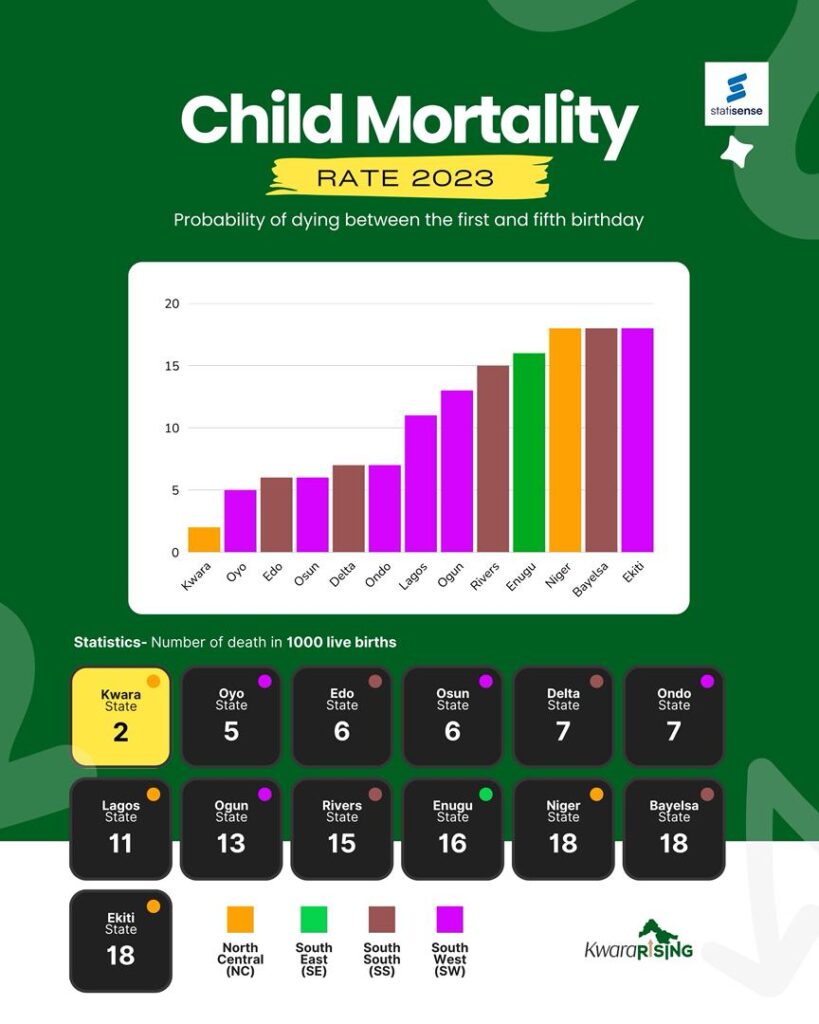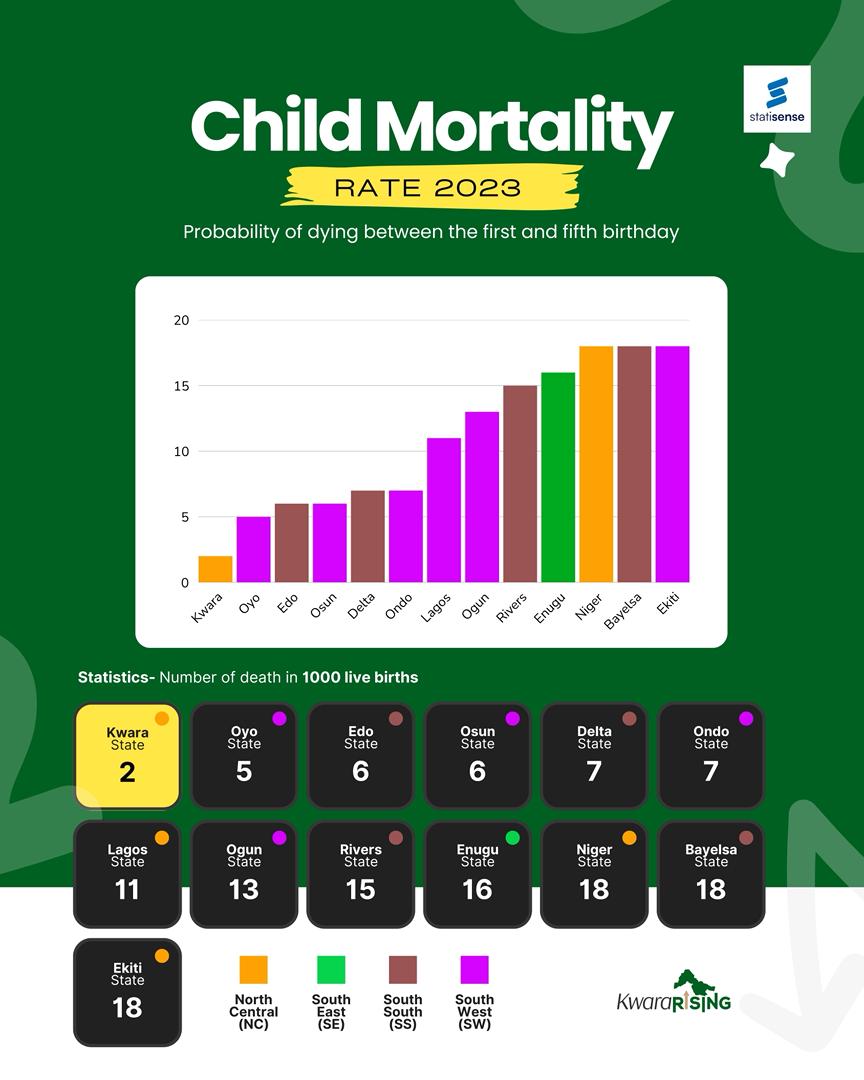…State’s focus on skilled birth attendants, immunisation, and maternal care credited for landmark health achievement
#KwaraRising

The Kwara State Government has announced that it currently holds the lowest infant mortality rate in Nigeria, marking a major milestone in its ongoing healthcare reforms.
Executive Secretary of the Kwara State Primary Healthcare Development Agency, Dr. Nusirat Elelu, made this known on Thursday during the First Quarterly Meeting of the Kwara State Task Force on Immunisation and Primary Health Care in Ilorin.
Citing data from the Nigeria Demographic and Health Survey (NDHS), Dr. Elelu said Kwara recorded just two child deaths per 1,000 live births — the lowest figure in the country.
“This is a direct reflection of improved healthcare delivery in our primary health facilities,” she said. “We have seen increased confidence among mothers who now prefer to give birth at health centres, thereby reducing preventable child deaths.”
Dr. Elelu added that Kwara also leads the North-Central region in the deployment of skilled birth attendants across its primary health centres (PHCs), which has significantly boosted maternal and infant survival rates.
To sustain the momentum, she said the state government has distributed free delivery kits to PHCs across all 16 local government areas and launched a toll-free line to eliminate illegal charges at health centres.
“In addition to safe deliveries, we are making progress in immunisation coverage for children under five. However, we still face resistance from some fathers who prevent their spouses from vaccinating their children,” she noted.
In response, Deputy Governor Kayode Alabi expressed concern over this barrier and pledged that the state would intensify community engagement, especially with men, to ensure full support for immunisation campaigns.
“The government is committed to working with local authorities to engage fathers and husbands on the importance of immunisation and maternal care,” he said.
The meeting also reviewed progress made in improving access to health services and discussed strategies to strengthen outreach to underserved communities.




